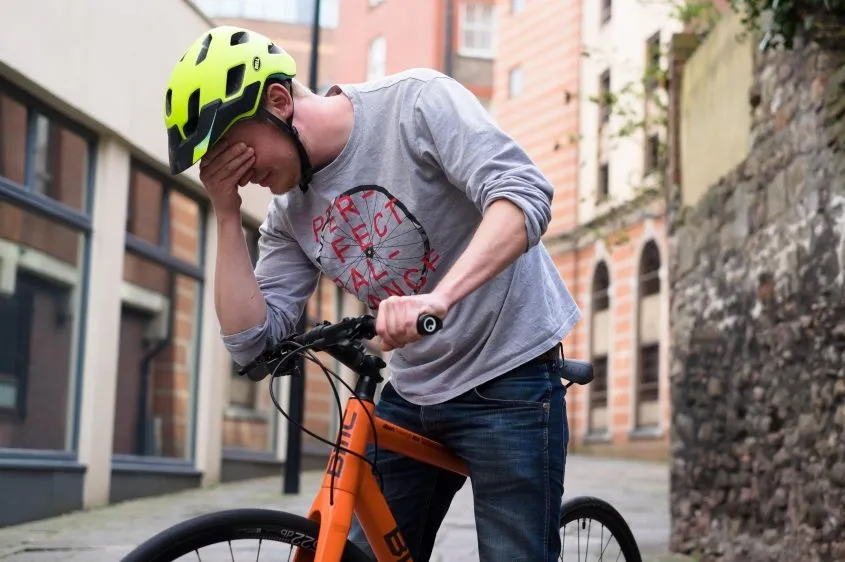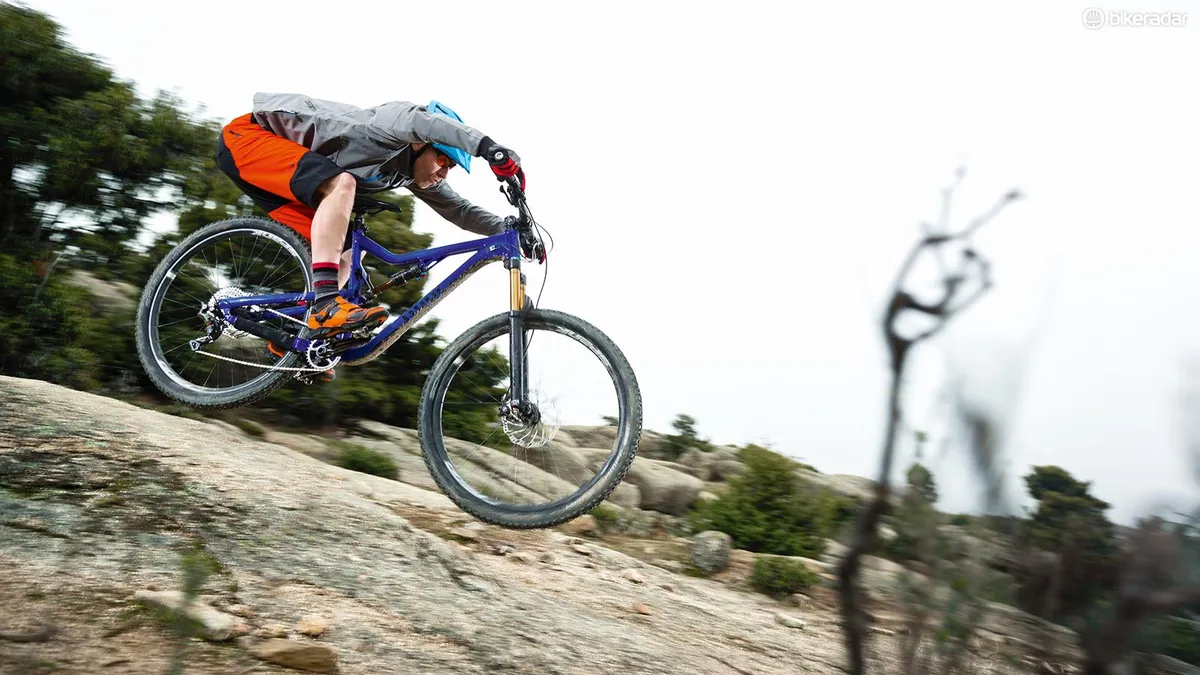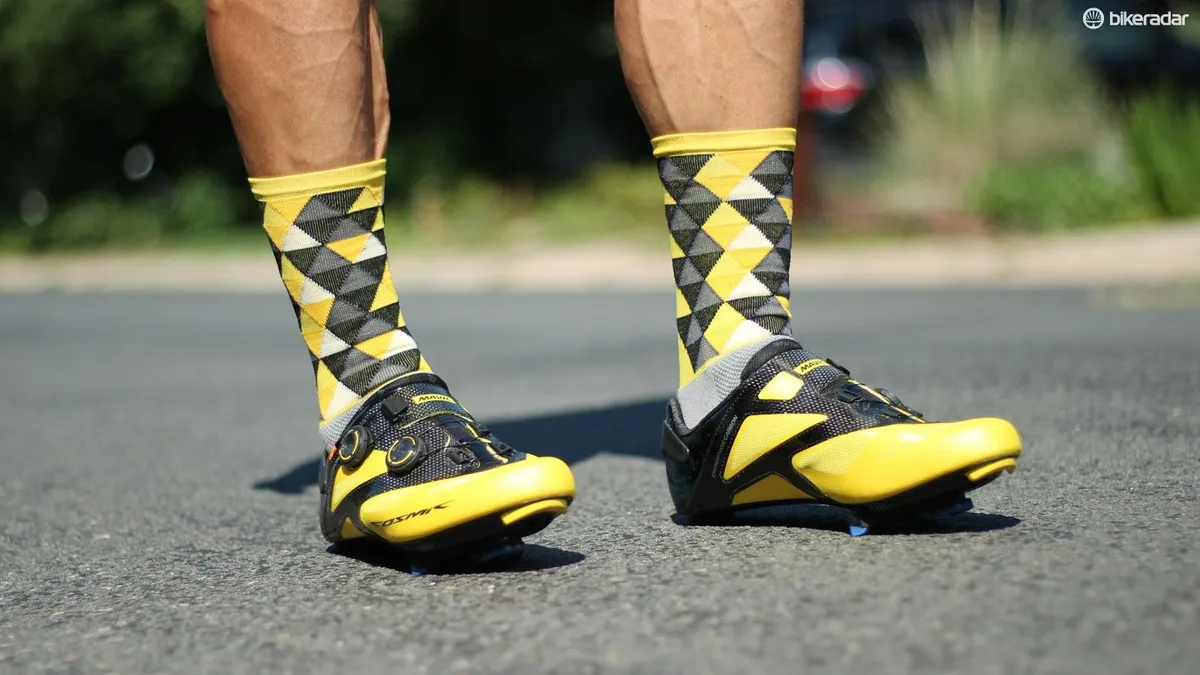A cow blew past and drowned in a puddle and I thought to myself, “Steven, sometimes it’s just hard to get out there and ride.” I live in Wales and August is tempestuous. Interesting fact: if you put the sky above Wales on the ground, it’d be Earth’s third biggest ocean. Some days motivation, like truth, beauty and dry socks, can be hard to come by.
- 7 things I’ve learned in a year of road riding
- Why obsessing over stats takes all the fun out of riding
There’s plenty online about how to get motivated/stay motivated/be the kind of sickeningly motivated person that has done star jumps without anyone forcing them to. And a great deal of it is very good advice. But obviously I’m not here just to parrot that, any more than I’m here to give you good advice.
No. I’m here to give you MY advice, just in case you’re not the person these articles are typically aimed at, who in all honesty seems quite sensible, well-balanced and just like totally annoying.

Psychology is a tricky and even dangerous field, and the minds of strangers should not be toyed with lightly. Still. Never mind. Here we go.
1. Don’t set goals
At least, don’t set goals before you’ve even left the house. Goals are hard. That’s the thing about goals. Knowing you really ought to smash that climb so hard you go a little bit backwards in time, or send that huge drop halfway down a quarry only increases the pressure to perform, and makes the very idea of getting changed, forklifting the cow-drifts away from the garage door and going for a ride even harder.
Most people agree that starting is the biggest hurdle, so why add extra hurdles you then have to psyche yourself up for as well?
Personally, I find it useful to concentrate on getting on the bike and starting to pedal, and nothing beyond that. I then decide small goals once I’ve warmed up and got into it. At that point they feel like challenges rather than hurdles anyway.
The trick is to give yourself permission to make actually going out the only goal, even if it means that — once you’re out — you just cruise around like your grandma’s one-legged grandfather’s ghost.
In the event, I’ve never found myself just cruising around anyway, no matter how tired I’ve felt beforehand. Pre-ride, though, allowing yourself the leeway means there’s psychologically less weight to lift. Which brings me nicely to…
2. Don’t visualise success

I hear how effective visualising success is all the time, but I just can’t see it working. (That was a joke, and a very fine one too.) If I try, I just end up visualising the ride, and realising how many climbs there are in it, and how I feel at the top of them. Here’s how I feel.
One time I crested a Brecon Beacons rise and surprised a whole string of squaddies on manoeuvres clutching actual rifles and just thought, feel free to shoot me at this point because a) it won’t feel worse than I do now and b) my face will almost certainly become less red, even if the bullet goes right between my eyes and is followed by a paintball, which is red.
I shouldn’t have to point out that this sort of visualisation isn’t productive for me. Is that really so odd? Vividly imagining a tough descent, a sickening climb or some feat of endurance when my muscles are cold, my adrenaline is zero and outside the sheep are barrelling past like tumbleweed, throwing wheels of spray into the roaring black sky, doesn’t help. It makes summoning the motivation to go out that much tougher.
So my new technique is instead to actively shove away any visualisation and maybe think about something nice which will occur afterwards, such as dinner, black coffee, or how tomorrow’s nuclear annihilation will at least dry out some of my socks.

Doing this helps stop me getting excessively focused on — and psyched out by — the ride. If you’re anything like me, instead of sensible, well-balanced and just like really annoying, it can really help to remember there will be an ‘after’. Probably. Which leads me to…
3. Don’t ride with friends or join a club
The camaraderie, the extra obligation to show up, the simple pleasures of sharing your sport with other human beings… it’s all just awful.
Clearly these things are going to work for a lot of people, but what if you’re just not a group person? There may be a reason you’ve chosen cycling instead of a team sport like football or… or ruggerball or uh… sportball? [check this].

What all those sensible, well-adjusted socialites never mention is that now a whole pile of people have to find not just the time to ride, but a mutually compatible time. It’s easier to find a unified theory of physics than to combine everyone at 6pm on Wednesday, and this can rapidly reduce the amount you actually ride.
It will also make you feel you should ride further and harder once you do get together, simply to make the most of it. And that’s bad because you should…
4. Lower your sights
More accurately, fragment them. Don’t go big or go home — go little and often. If your motivation need only punt you over the bar for an hour-long blast, it’s more likely to succeed than if you’re facing a four-hour extravaganza.
That means you’ll succeed more often. Three (or two or even one) single-hour rides beat a single well-intentioned epic you didn’t quite manage to squeeze in.
If you’re still anything like me, then again it’s about giving yourself permission: permission to do enough, rather than do it all and get fit and brilliant in one go, or else feel you’ve failed. What do you mean you don’t think like that? Do you have to be so well-adjusted? Jesus.
Basically, the easier it is to go (keep your bike ready and invest in good clothes, too), the less force of will it takes each time. The less motivation you need. And the more regularly you go, the more improvements you feel… and that generates a motivational momentum of its own.
So damn all that competitive stuff. Take it easy until you get on the bike, then go crazy. But not too crazy. And then do it again. Just like I’m about to do now!
Well, tomorrow.
